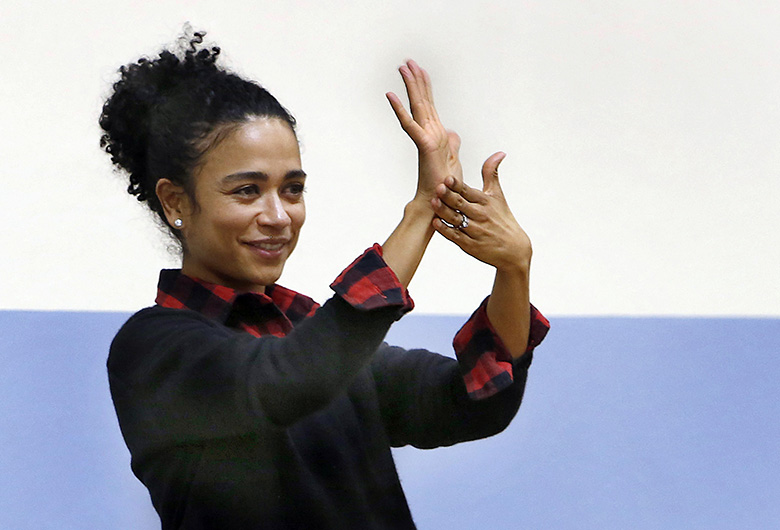Lack of ASL Education: The Marking of an Ableist Society
Karen Callaway/Chicago Catholic
Actress Lauren Ridloff who played Makkari in Eternals demonstrates sign language.
The deaf community is often assumed associated with being congenital, meaning people are born with the condition. However, many fail to consider the magnitude of the disability— the National Institute of Health indicates that over 10 million people in the United States alone are hard of hearing, many of whom are over the age of 65. Myths and misconceptions surrounding deaf people persist as our generation has become more socially disconnected from the world. A majority of people do not learn American Sign Language, and many educational institutions do not even offer it as a language course. American Sign Language, often shortened as ASL, is an expression of language through hand and facial movements commonly used by the majority of deaf Americans. Interestingly, schools across the country all have a foreign language requirement because, as the University of North Georgia claims, it “teaches and encourages respect for other peoples and fosters an understanding of the interrelation of language and human nature”. By that logic, there’s no excuse as to why ASL is not a required language because it allows us to connect and normalize marginalized groups with communication disabilities.
Language connects us all. It introduces us to different cultures, allows for communication, and creates a sense of community. ASL is no different. Oral communication is the norm for almost everything in our society. Listening to a professor giving a lecture, watching Youtube, or simply engaging in everyday conversations all require some level of communication. Our society is fundamentally wired to benefit those with hearing. By offering ASL in the curriculum, students will have more of an appreciation and awareness regarding the deaf community. While the majority of students will not become proficient enough to become fluent, having a background and knowledge of ASL will likely increase interest in the field and popularize the language. The more awareness we can bring to deaf people, the more resources that will be available to help them navigate through our oral society.
Although Irvington High School does offer ASL as an elective, it’s not as prioritized as other foreign languages. ASL is only offered 3 periods: two of which are 0 and 7th period. This adds more barriers and makes the decision more difficult, as students are unlikely to come before or after school for a class. Our world often accepts it as a default for people to be able-bodied, and this further dissociates us from the world of the disabled. Motivation to learn sign language is often limited to being able to secretly communicate with friends, not for the respect of deaf people. Our knowledge of sign language shouldn’t be limited to swear words. With over 1 million non-hearing individuals in the United States, the ability to communicate and connect with deaf people is essential in connecting our country and society.







